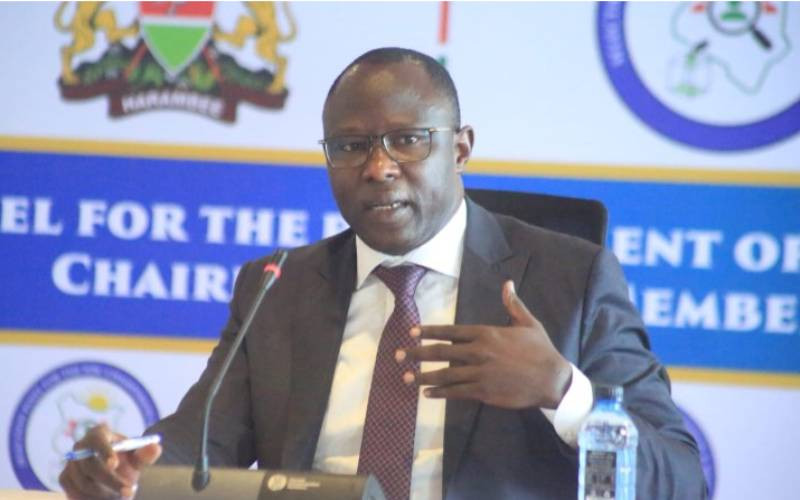President William Ruto has nominated Erastus Edung Ethekon to serve as the new chairperson of the Independent Electoral and Boundaries Commission (IEBC), marking a significant step in the reconstitution of the country’s top electoral body. The announcement, made on Thursday, May 8, also included the nomination of six other individuals to serve as commissioners of the IEBC.
The proposed commissioners are Ann Njeri Nderitu, Moses Alutalala Mukhwana, Mary Karen Sorobit, Hassan Noor Hassan, Francis Odhiambo Aduol, and Fahima Araphat Abdallah. These appointments are set to restore the IEBC to full operational capacity following a prolonged period of leadership vacuum and institutional uncertainty.
The nominations come at a critical time when the country is preparing for several electoral processes, including upcoming by-elections and the eventual lead-up to the next general election. The IEBC plays a central role in managing elections and referenda, delimiting electoral boundaries, and overseeing political party activities, among other responsibilities. As such, a functional and credible commission is seen as vital for ensuring democratic governance and political stability.
The list of nominees has been formally submitted to the National Assembly for vetting and approval, in accordance with the Independent Electoral and Boundaries Commission Act and the Public Appointments (Parliamentary Approval) Act. The parliamentary process will include background checks, public participation, and committee hearings, culminating in a final decision by lawmakers.
The president emphasized the importance of the IEBC in safeguarding democratic processes, describing the commission as one of the foundational institutions that uphold the rule of law and public trust. In a notice accompanying the nominations, the head of state called on the National Assembly to give the list urgent attention, underscoring the necessity of reconstituting the electoral body without further delay.
The IEBC has faced challenges in recent years, including leadership resignations and questions around its capacity to conduct free and fair elections. The departure of several commissioners, coupled with the expiration of terms for others, had left the commission operating without the full complement of officials required by law. This state of affairs had raised concerns among political actors, civil society organizations, and the general public over the commission’s ability to execute its constitutional mandate effectively.
With the nomination of a new chairperson and commissioners, there is renewed optimism that the commission will regain public confidence and reassert its authority as an impartial and competent electoral management body. The choice of Erastus Ethekon as chairperson is expected to come under particular scrutiny during the vetting process, given the high-profile nature of the role and the need for proven leadership in overseeing complex electoral processes.
The newly nominated commissioners are also expected to reflect a balanced representation of the country’s diversity, as stipulated in the law. Their approval will pave the way for them to take the oath of office and formally assume their roles.
As the country looks ahead to future electoral milestones, the swift approval and subsequent installation of a new IEBC team will be closely watched both domestically and internationally. The effectiveness, neutrality, and independence of the commission remain key to sustaining Kenya’s democratic trajectory.

